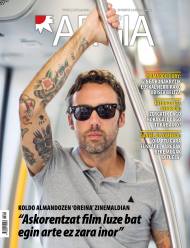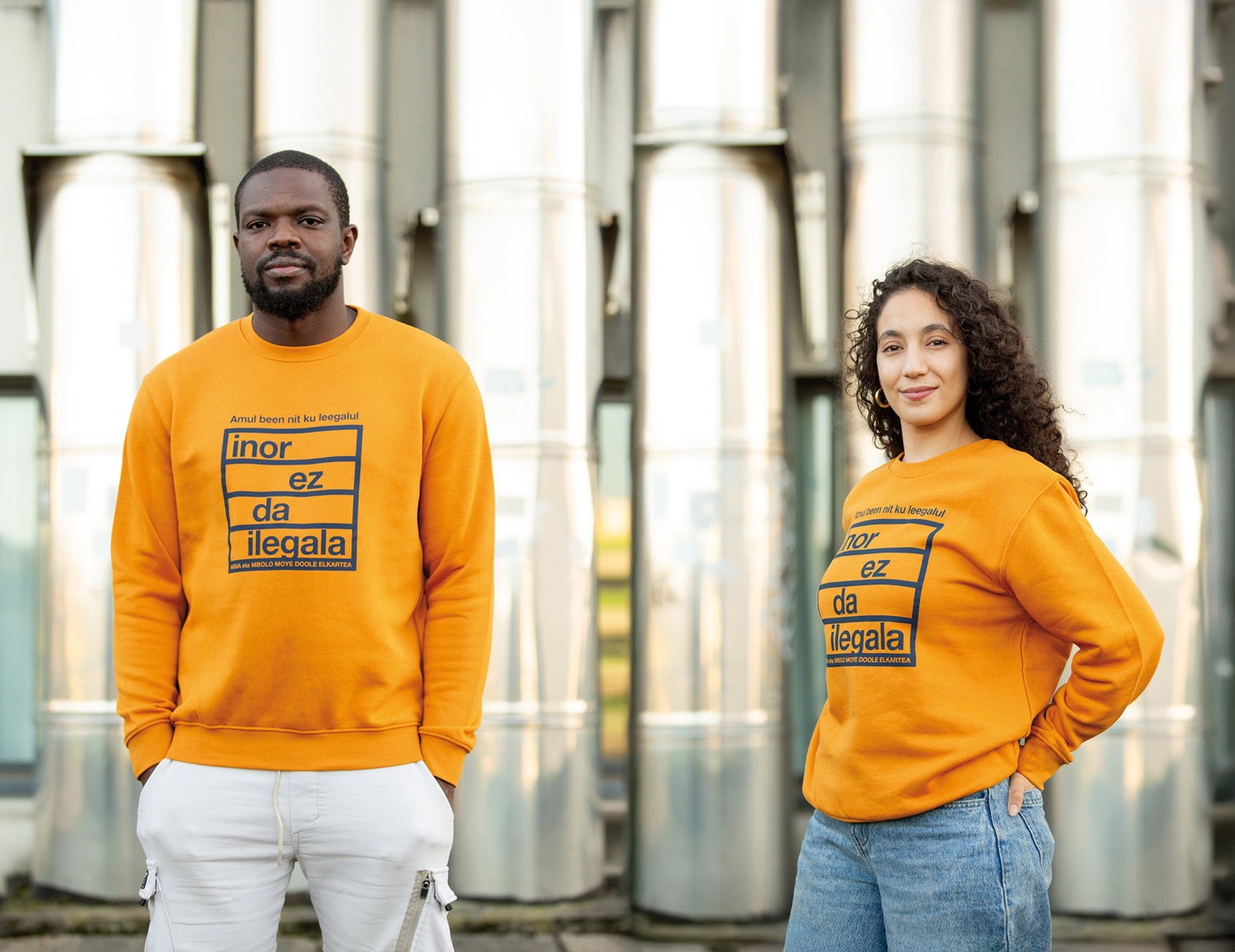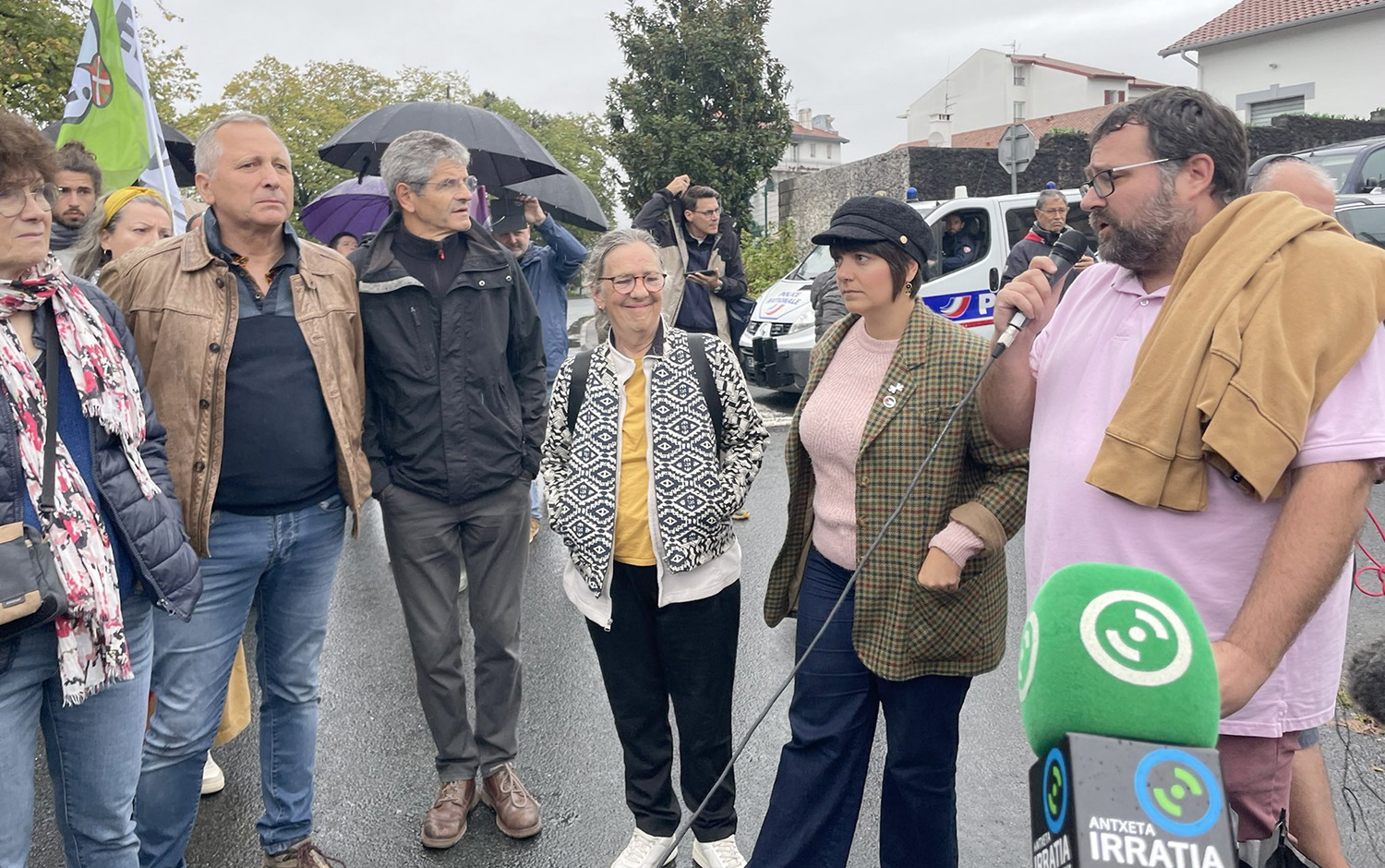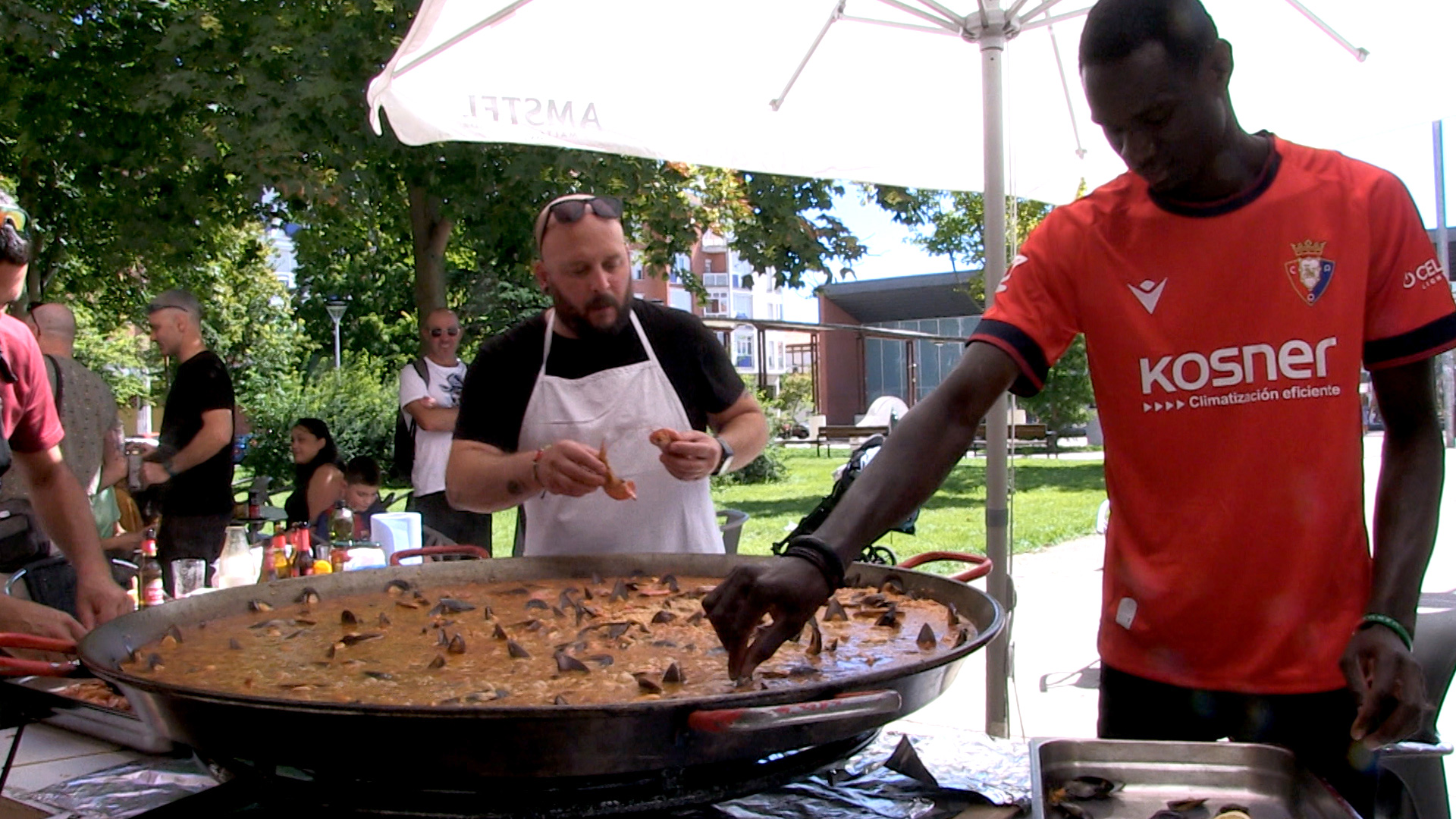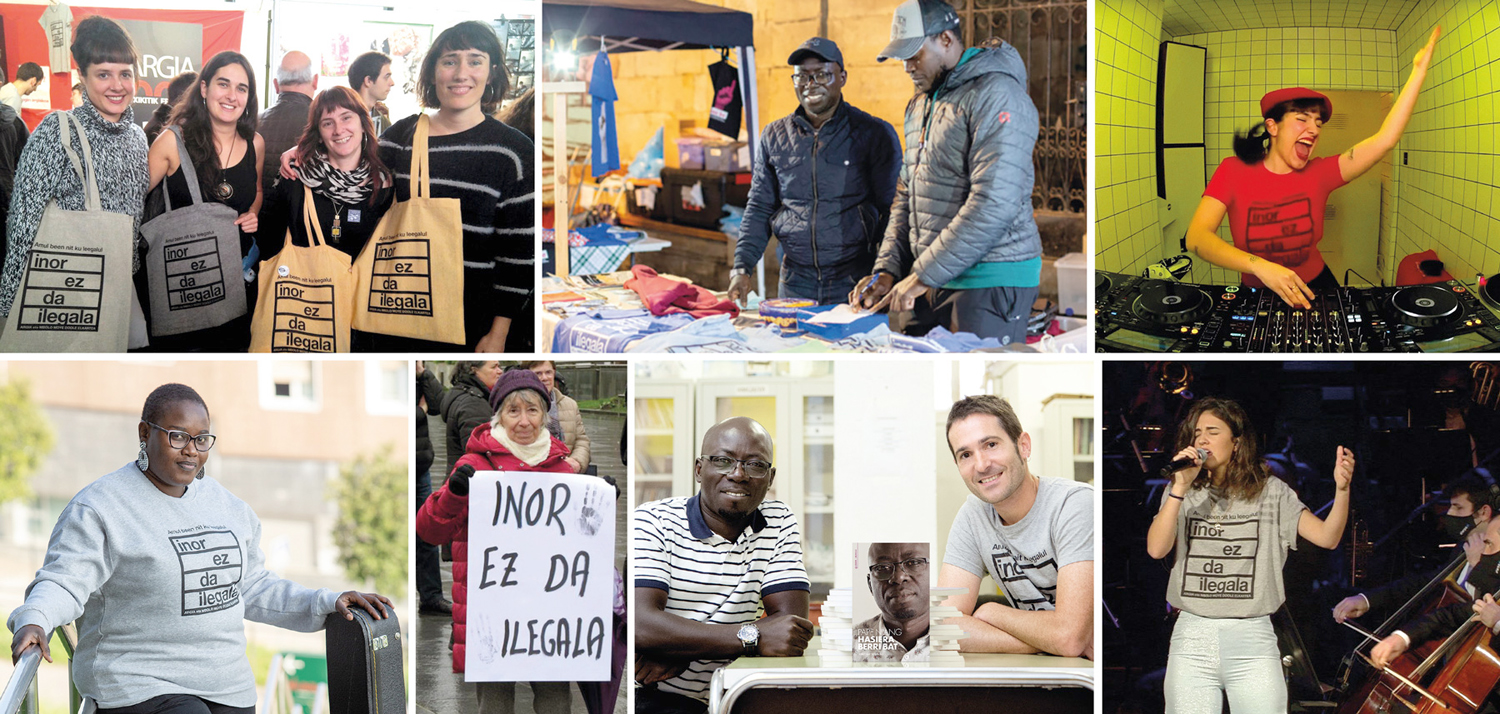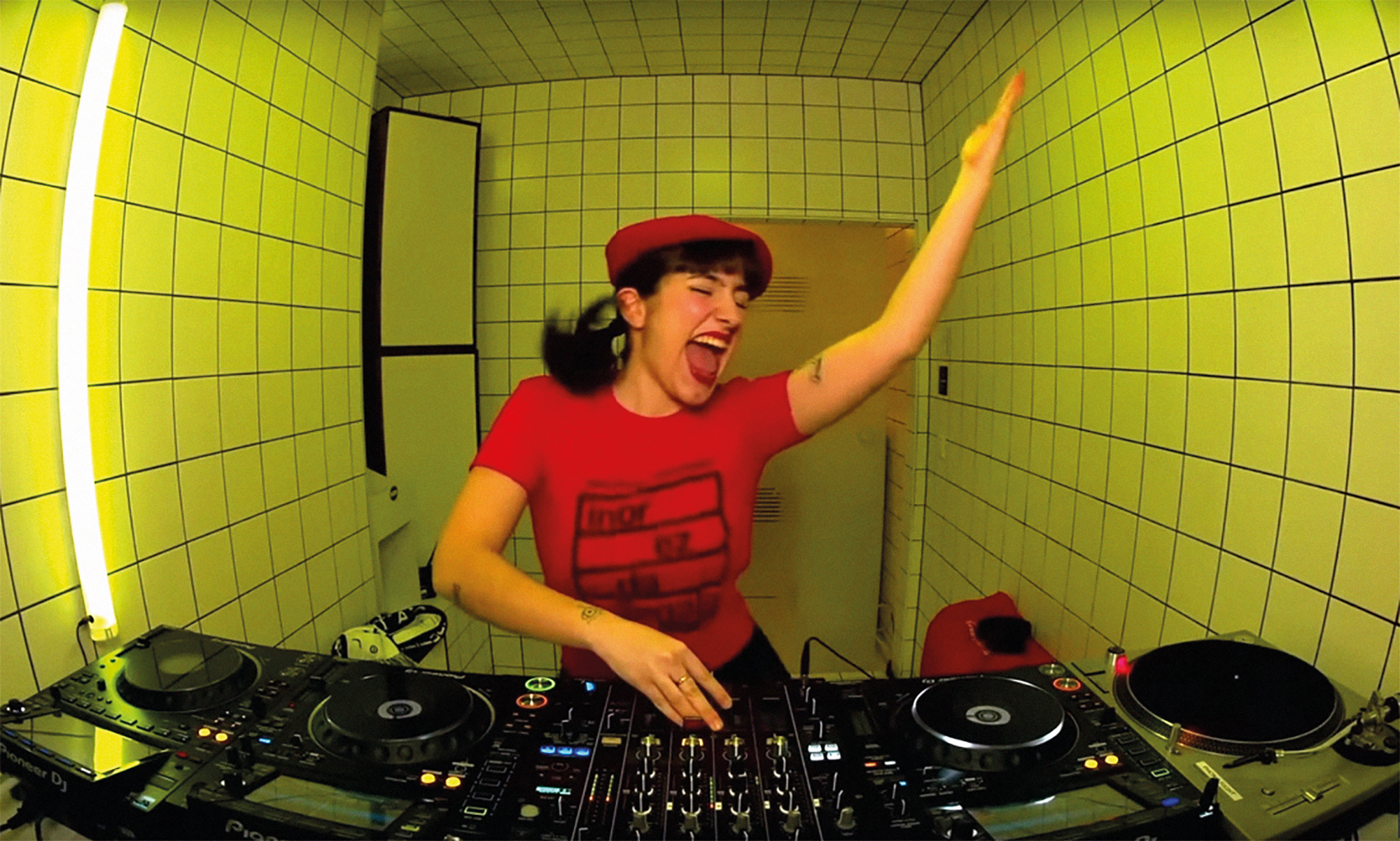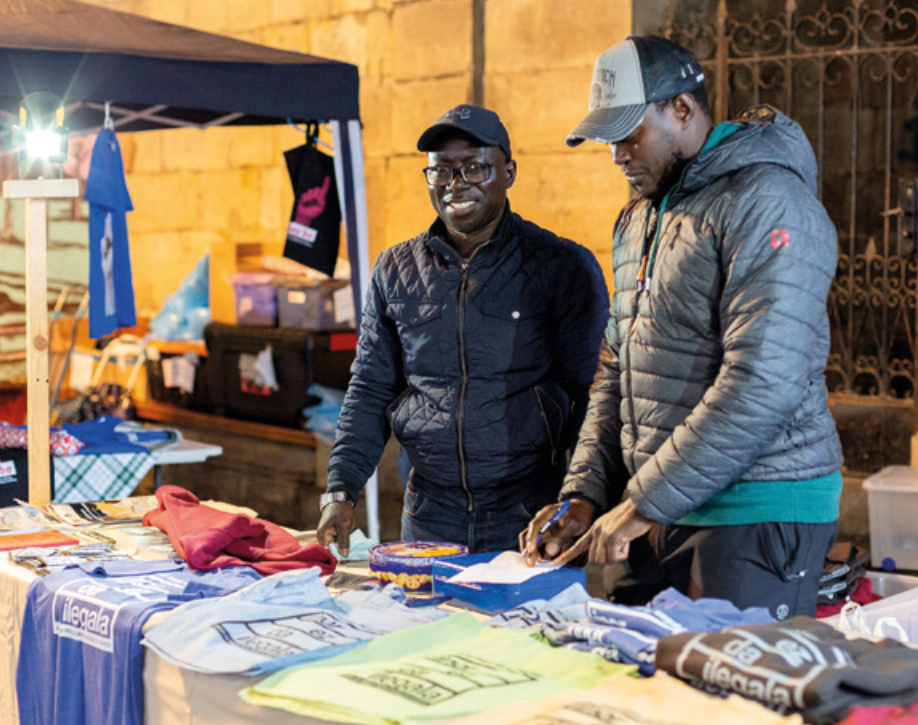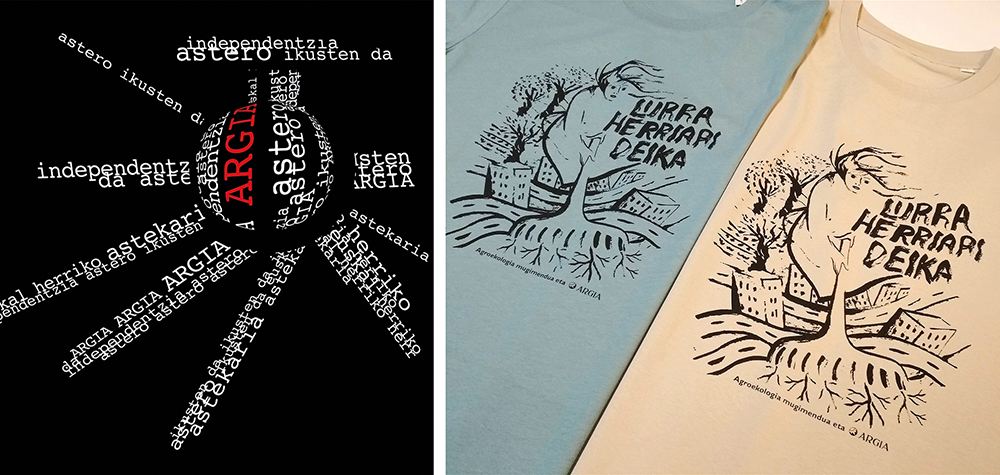"My life is the life of many others."
- The life of Mamadou Oury is the testimony of a chain of terrible obstacles and their overcoming. Innate poverty in Guinea Conakry, travelling to Europe, plastic sea in Almeria, mistreatment in juvenile centres in Álava and illegal expulsion attempts, an incalculable obstacle to obtaining a residence permit. This testimony is the shared history of millions of people. Like yesterday, today too.

What childhood did you have?
I was born in Guinea Conakry, a town in the country of Telimile. There were schools in the villages around, not mine. The people before said: “I’m not going to send my child to school.” Whites, who were the whitest, hated whites, as whites hated blacks. In the field, we grew rice and some cereals. Around the house corn, cassava or potato. We were a poor family, we ate in the morning, and you didn't know what you were going to have dinner. I have six brothers.
I once saw in the market the fruits of the forest. I started going to the forest and picking up my fruits and selling them on the market. When I was sewn, I started when I was 10 and until I was 15, I was approaching the capital market. I sold and bought a lot of stuff. I slept in the street with a friend. Then I started trading in Guinea-Bissau. I was traveling to Gambia to buy clothing and sell it in Guinea. By the end I had made some money, but I was unlucky, I was robbed of the money saved.
And then you decided to leave?
I wanted to get to Angola, a rich people. During this process, a friend’s friend threw me “I go to Spain”. "To Europe! I have changed my mind, I also leave.” Many of us didn't say anything to the family. He told me that he was going to leave in a week, that the kick cost EUR 600. I told my brother that I was going to Gambia for goods and I went to Senegal. I thought it was like taking a bus, taking the ticket and going out.
Then you started a terrible odyssey.
That's right: you want to go, you're looking for more people who want to go out, those other people -- until you fill the skate, then you go out. But they always tell you that you're going to leave tomorrow. And once you've paid, you'll never get that money back. Never. I and many other people were locked up in a house surrounded by walls. They told us that we couldn't leave, that the police would stop us because we couldn't catch the kick. But we were fooled. You don't know anybody, not even the language. We had to give them our money to buy the food and they took advantage of the situation to give them little food for a lot of money. We started to protest, and they took us to an island. But they still needed more people. We spent four unforgettable days on the island [laughter].
“He told me that the kick cost EUR 600. I thought it was like taking a bus, taking the ticket and going out. But they always tell you that you're going to leave tomorrow. And once you've paid, you'll never get that money back."
How many people could fit in the skate?
180, tight. These four wonderful days we spent on the “Isla Morada”, as it was called. Sea water, food, zero. They told us that before they boarded each one they had to buy their water, but when they boarded, they took everything off. They would give us everything. You can believe or not, but you can't do anything. If you're told not and you're trying to come back, they won't let you, because then others won't want to travel. They'll kill you. They left us a few bottles of water and a glass. No one had died, but almost. At midnight on the fourth day we get to the kick and we're screamed, "We're going!" If you stay there, you stay.
And finally, on the way to the Canary Islands.
10 days. I hadn't shook my eye in ten days. There, we had food and drink, which had stolen us when we embarked. They separated us. It was the first time I traveled by sea. I knew how to swim a bit because we had a river in the hometown. In our case we all come here. Some of them lost their heads, didn't speak or speak. Don't kill anyone, but disappear...
They were asking for help from the lifeguards and they didn't give it to them, didn't
they? The day before, people started thinking about going back on their steps. But the captain said no. There wasn't enough gasoline to come back, you had to try. People were half dead, and I was young and something better. That night she broke the kick and started to put water in. The sea was very proud. I thought we were going to die. It was at night, many had not realized anything, half of the deaths were half asleep. On the last day, around five in the afternoon, we saw boats and helicopters in the distance for rescue. They did not listen to us, there would be others who were suffering more and went to them. We didn't get there until midnight.
At the time of landing, at the disposal of the police. 40 days in the Canary Islands and five in Madrid. From there you went alone to Almeria, to the famous plastic seas. Did you get a job?
At first no, then occasionally. Tomato, eggplant, bell pepper. We were paid between 30 and 32 euros a day [it was 2008]. When I wasn't received, I went to markets and sold CDs. People bought it, but when the police appeared, you had to run out with all your strength. I was afraid that if I took it with CDs you would never get paper. So for a year.
And a year later, to Euskal Herria.
I headed to Vitoria through a compatriot. He comes to me and says, "Let's go to the Municipal Police." I, among myself, “look, always the police!” [laughs]. I was taken to the Council, which is responsible for the minors, to the Zabaltzen centre. We spent two months in the center, from there to Estibaliz. There, another two months, and finally, six months. We were all boys. From southern Africa, Algerians, Moroccans, about 30. Wake up, breakfast, go to study and return to the center.
Then it got worse.
I don't know what happened, I think they didn't want us to come and toughen the situation. By the age of 18, they stopped producing papers to obtain the residence permit. And in the middle, they started imposing severe sanctions on them for the small problems. For example, by asking for more heating of milk. Once an educator wanted to hit me, but I didn't. They were like that, not many times, but yes. There was an educator who told us he made karate, that he liked to play.
Later on, the coordinator called three of us to the office. He presented us with papers that said we were no less. He told us that they were made by the Council, that we had to sign. We didn't, we had our legal passport, the police had our documentation. He replied that the police had examined our fingerprints and that they had verified that we were not minors. Everything was false. I wanted to sign, bring the papers to the Parliament and fascinate us. We did not know how to read. We didn't sign it, and then it harshly opposed it. We, too, rebel, all of us. Three of us were appointed to be responsible for the “rebellion” and they wanted to impose a very harsh punishment on us: confined in separate rooms, completely isolated for three weeks. So we all left the center together.
“If I had known what was going to happen, I wouldn’t have come. But if he tells someone ‘it doesn’t go, 70% doesn’t happen’, he says: ‘Well, 30 percent yes, maybe one of them.’
The issue acquired a great public dimension. It supported a network of citizens and movements from Vitoria-Gasteiz.
Yes, they already knew us. Some of us went to the church of Zaramaga, to three mosques, to houses of friends or solidary people. They were some of those who had contacts in Barcelona or Madrid. That is what the center wanted and the Diputación.Después of four days we returned to the center. As far as the roles are concerned, we managed to get the Member to fulfil her obligations.
Outside the center begins a new phase. He had a residence permit for a year, without a work permit. To renew the permit, you had to file a work contract.
It's hard to explain, but it's common here. You don't have a work permit, you can only hire someone who is willing to hire for a year. If you find it by miracle, it will tell you: “Will you come to work tomorrow?” You can't. It has to do a lot of paperwork that will last for at least three months. Goodbye...
I looked for a job like a crazy man. There are a lot of people asking you for money for a contract. Even more serious: it may happen that the contract is not concluded after payment, there are many mafias. I have known many cases of this kind.
How many jobs have you done since then?
I've worked as a welder in Vitoria, also in cleaning. I've studied Spanish, welding, painting, electricity, telecommunications and cleaning. I also went out to look for work in Germany and Andalusia.
How are you now?
I have a residence permit for five years, which expires the following year. I hope you have no problem innovating, in theory, once you've reached the age of five, the census is enough. In theory, laws change ... For the rest, I am working well at the bar Hala Bedi, but a few hours. I look for more, I always look for more.
Have you been an extraordinary life?
My story is about many of us. It's the occurrence of many poor people. “I’m leaving, I won’t come back until I get something.” If I had known what was going to happen, I wouldn't have come. But if you tell someone "don't go away, 70 percent doesn't happen," he says. “Well, 30 percent yes, maybe I’m one of them.” You have to risk it, right? And they go out to Europe. Many turn around, not create, many die. Some have been in the Sahara for five years without being able to pass. I have been told that the Sahara is harder than the kick, many starve to death.
Do you mean something else?
We're normal people. We came with the intention of making a living, and we found what we didn't expect. Despite everything, we resist, we fight. Racism is not often expressed in words here, but it is noted. I sat on the city bus and I know there won't be anyone next to me. I look like the king on the bus, even if he's behind me, I always have two places for me [laughs].
.jpg)
“I have suffered in many ways, never as long as my mother died.”
You went out and looked for money to help your family. Ten years have passed...
Those of us who travel like me think: “If you get past, you’ll be able to work whenever you want, winning everything you want.” We got here and we found a very different face. I see what there is, but the family still thinks what I thought before: “If you arrive you already have money.” Why is this happening? Well, for example, if a guy gets a job and sends EUR 100 or 300 a month, because that's a fortune. The family will be fine, will make the house... People only look at that 3 percent. Neither those who have died at sea, nor those who cannot come back after they have arrived, to the majority. Some don't get a paper, some get a paper, some get a job, here they get older. Because you can't come back with empty hands. Look, I've been around for ten years. Brothers have married, things have happened. Do you know what I'm told? That I'm a bobo. “You have been there for a long time, no money, no marriage, nothing.” They think that I have done nothing for that reason I have not achieved anything. Or that I am avaricious with money, that I have it, but that I do not separate it. If I don't have money, I don't call.
In these years there has also been some dreadful fact in the family.
I have suffered in many places and in many ways, but never as long as my mother died. I remember him every day. If you're there, with your family, it can be more bearable, but if you're out... One of my brothers wanted to come, I was against. Mali attempted to enter Algeria and was abducted by a Tuareg. EUR 3,000 was requested in exchange for not killing. The fear passed, he was tortured. Thanks to the help of many people here and there, today it is alive and free.
Relations are not easy, but there are solidarity networks.
We live in very difficult situations. I, among my fellow countrymen, have very few friends, of those who are for what you need. Yes, we will or will not meet a newly arrived fula speaker and newcomer will not leave him in the street, if there is another fulgor nearby. The temporary shelter is insured, then you must make your journey.
In Africa, our village, we're building a school together, because we don't have a school yet. Those of us who are outside and those of us who can put money into the material, and those who are still in the village participate in the construction.
.jpg)









